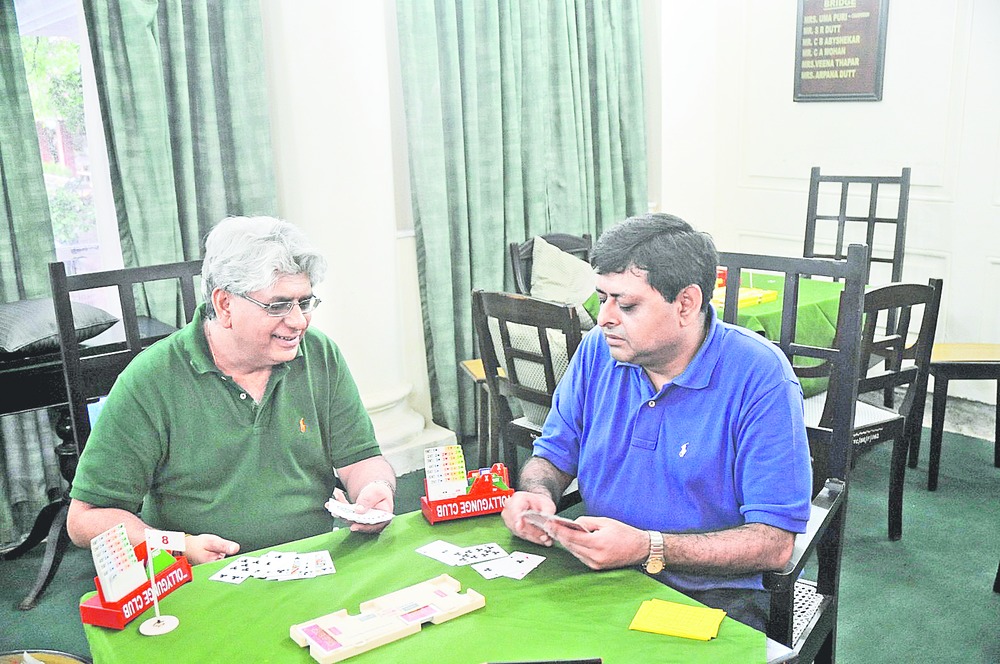
An Indian team dominated by Calcuttans and captained by a Ballygunge resident finished fourth in a field of 28 top international sides that competed in the World Invitation Bridge Tournament in Indonesia a few weeks ago.
The squad of three pairs, led by Hemant Jalan, lost to champions Bulgaria in the semi-final stage after once beating them in the league stage of the tournament, held at Manado between late August and early September.
"We were the only team to beat the Bulgarians in the league stage but the day of the semi-final was different and they played better than us," said skipper Hemant, 59, who had started his bridge at the Saturday Club.
The Indians had also defeated England and Australia on their way to the semi-finals.
The other Calcuttans in the line-up were Hemant's partner Ashish Malhotra, also from Ballygunge, and the star bridge pair of Sumit Mukherjee and Debabrata Majumdar, both residents of Birati and employees of Indian Railways.
Two veterans, Subhash Gupta of Delhi and J.M. Shah from Mumbai, were the third Indian pair at the tournament.
Duplicate bridge, the most widely used variation of the game in competition, involves different partnerships in which the same hands are played successively.
"What makes the knockout stages of big tournaments a little different - and tougher - than the league matches is an opaque screen across the table," said Ashish, who started playing bridge at 16.
The screen is there to ensure that the players can see one opponent but not their partners, eliminating the chances of communication through gestures.
"As bridge players, you hunt in pairs and you have to know each other's game inside out. It helps that Debabrata and I have played together since our early days, first for the same para club, for the state, for Indian Railways and finally for India," said Sumit, who had picked up the game as a student at Rajabazar Science College.
According to captain Hemant, the Indonesia tournament was more like one of the open tournaments on the ATP or WTA circuit than a grand slam. "But our fourth-place finish is definitely one of India's better performances in recent years," he said.
The World Bridge Federation comprises 118 countries and competition is tough. India may not be among the high rankers in the sport but has players who have had their days at the table.
Sumit, whom Hemant describes as "currently the best player in India", and Debabrata had won silver at the prestigious European Championship in 2006.
In Indonesia, the highlight of the tournament for the team was when the national anthem was played at the prize distribution ceremony. Hemant's team won $6,000 and the champions earned $30,000.
The players practise for six to seven hours a day and, as in almost every sport, their performance dips when they can't devote enough time to honing their skills in what is acknowledged as a highly cerebral game.
Sumit and Debabrata get only a couple of hours for practice on weekdays. They make up for it by putting in nine hours on weekends.
The pair has qualified to represent India at the Bermuda Bowl, the most prestigious bridge tournament in the world that starts in Chennai this Saturday. India is hosting the tournament for the first time.
"We have competed in the Bermuda Bowl before, but this time the event is being held in our country and it would mean a lot to us if we do well," Sumit said.
Unlike in most other sports, selection of teams for bridge are done before each tournament and the combination that wins the trials gets to represent the country.
Practice sessions typically involve analysing matches featuring the top international players on the Internet and logging in simultaneously with their partners to play against other pairs.
Bridge players believe that the way forward is to take the game to schools. "Many schools in European and southeast Asian countries have made bridge compulsory because it improves co-ordination, concentration, memory and team spirit," Ashish said.
Mahadevi Birla World Academy introduced its students to bridge a couple of years ago.
Do you play bridge? Tell ttmetro@abpmail.com











